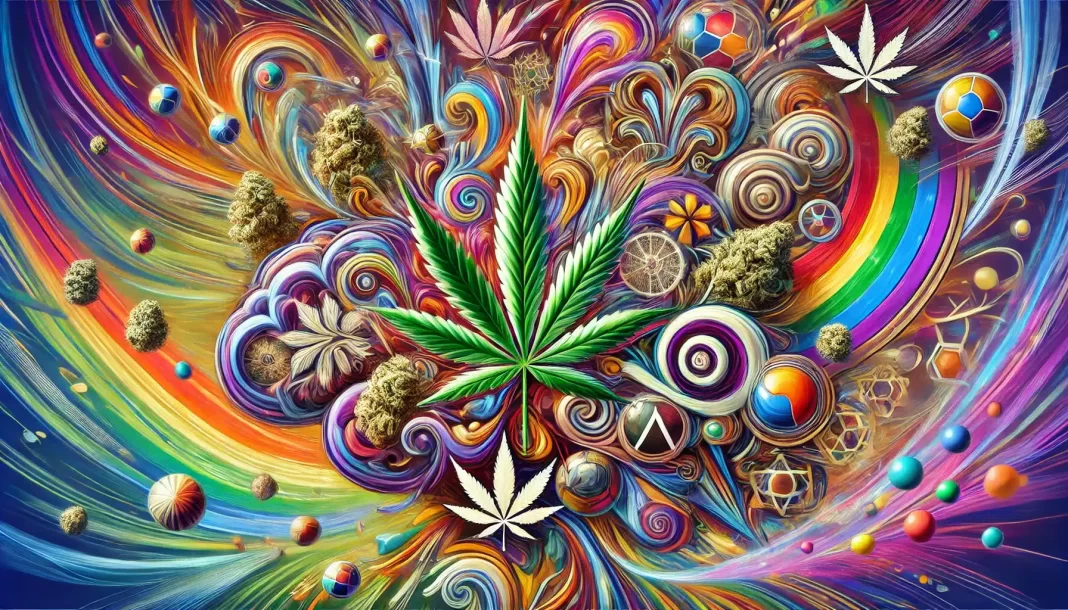In recent years, dopamine has taken center stage in discussions about motivation, reward, and mental health. Whether it’s being linked to addiction, depression, or the “high” people chase, the role of this neurotransmitter is constantly being explored in modern culture. But in the context of psychedelics, cannabis, and mental health, the fascination with dopamine gains even more relevance. Understanding dopamine’s function could help explain the growing interest in these substances and how they interact with the brain’s reward systems, impacting mental health issues like anxiety, depression, and even substance use disorders.
Why Is Everyone So Obsessed with Dopamine? A Deeper Look into Psychedelics, Cannabis, and Mental Health
The Role of Dopamine in Mental Health and Substance Use
Dopamine is often labeled as the “feel-good” chemical, responsible for reinforcing pleasurable behaviors. But its role goes far beyond just pleasure; it’s intricately involved in motivation, learning, and reward prediction. This makes dopamine a key player in addiction and mental health disorders, as the brain’s reward circuitry can become disrupted by substance use, leading to dopamine dysregulation.
For those exploring psychedelics and cannabis for therapeutic purposes, understanding how these substances interact with the dopamine system is crucial. Cannabis, particularly THC, has been shown to temporarily increase dopamine levels, leading to heightened mood and euphoria. However, long-term use can dampen dopamine production, contributing to anhedonia (the inability to feel pleasure) and motivation deficits. This is why cannabis is sometimes paradoxically associated with both pleasure and lack of motivation.
Similarly, psychedelics such as psilocybin have been shown to affect dopamine pathways, although their primary action is on the serotonin system. Recent studies suggest that psychedelics may help “reset” the brain’s dopamine circuits, providing relief for conditions like depression and addiction by influencing how the brain processes reward and motivation.
Dopamine’s Role in Addiction and Cannabis Use
Cannabis, known for its mood-altering effects, directly influences dopamine. Upon consuming cannabis, especially strains high in THC, there’s a spike in dopamine levels, which can lead to feelings of euphoria and relaxation. However, over time, frequent cannabis use may desensitize dopamine receptors, potentially contributing to addiction or dependence. This is why some cannabis users find themselves chasing the “high” without achieving the same satisfaction as before.
Psychedelics, on the other hand, are being studied for their potential to break addiction cycles, including dependence on substances like alcohol, opioids, and even cannabis. Psychedelics may help the brain rewire its reward system, potentially offering a pathway to dopamine regulation without fostering the same compulsive behaviors as traditional addictive substances. This is particularly promising for mental health treatments, where depression and substance use disorders often co-exist, both linked to dopamine dysregulation.
The “Dopamine Detox” and the Role of Psychedelics
In the age of instant gratification, many people are exploring concepts like “dopamine fasting”, believing that taking a break from dopamine-triggering activities (like social media, video games, or even cannabis) can “reset” their brains. While the science behind dopamine fasting is still inconclusive, the idea resonates with the growing movement toward mindful consumption of substances like cannabis or psychedelics.
Psychedelic experiences, in particular, may provide a “reset” effect for the brain’s reward systems. Recent research suggests that psychedelics can help disrupt harmful patterns of behavior, offering a fresh perspective on one’s life and mental state. For people struggling with dopamine-related issues such as depression, addiction, or anxiety, psychedelics may provide the reset they are looking for, without the need for complete abstinence from pleasurable activities.
Dopamine, Psychedelics, and Neuroplasticity
A key component of dopamine’s role in mental health is its impact on neuroplasticity—the brain’s ability to reorganize itself by forming new neural connections. Both cannabis and psychedelics have been shown to influence neuroplasticity, which could explain their therapeutic potential for mental health conditions like depression and PTSD.
For instance, psychedelics like psilocybin have been found to increase neuroplasticity, allowing individuals to break out of rigid thought patterns often associated with depression or anxiety. Cannabis, particularly CBD, may also have a role in promoting neuroplasticity, although more research is needed to fully understand how it impacts long-term brain health.
Conclusion: The Fascination with Dopamine in the Psychedelic and Cannabis Space
So why is everyone so obsessed with dopamine? Because it sits at the intersection of reward, motivation, and mental health. For those exploring the therapeutic potential of cannabis and psychedelics, understanding how these substances influence dopamine is key to unlocking their benefits—and avoiding their pitfalls. Whether through mindful consumption, dosing protocols, or even exploring the potential of dopamine “resets” via psychedelics, this neurotransmitter holds the key to better understanding and perhaps improving our mental health





